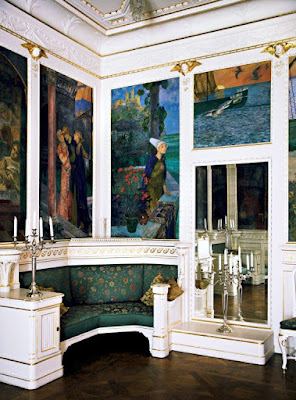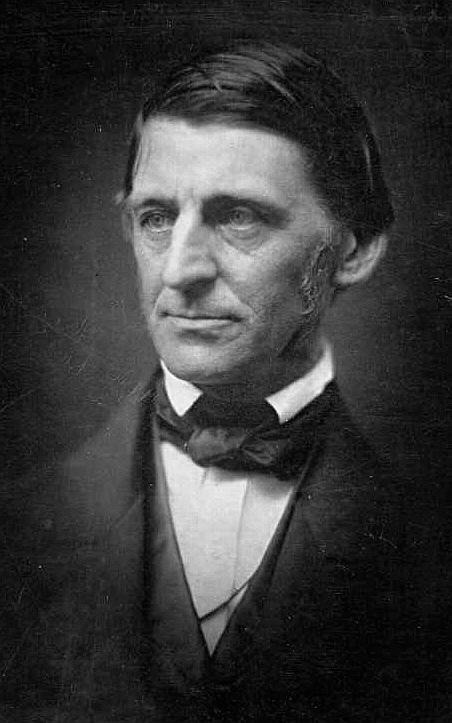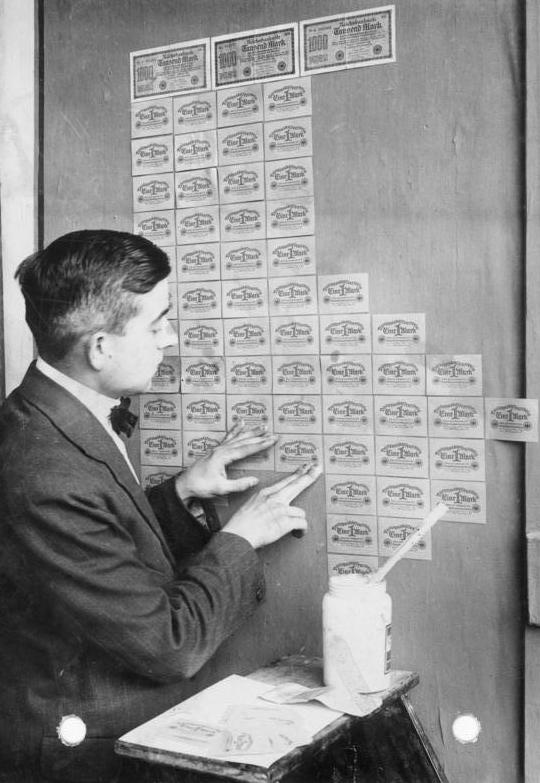The difference between fame and legacy is that fame has to do with ego, while legacy has to do with impact. People can be famous, and yet leave very little in terms of legacy. Furthermore, legacy can be negative. As an example, we have an entire class of politicians that rarely leave anything but destruction in their wake. At best, they undo something stupid that some previous politician did. The list of famous individuals who's legacy is dubious at best is long.
On the other hand, we have individuals who leave a legacy, but who themselves have become forgotten. Nobody knows the identity of the inventor of the wheel, but his or her legacy is monumental, and the same is true to a lesser degree for all other un-named inventors through our ages. They are either forgotten, or merely mentioned in passing.
In between these extremes, we have individuals like Emerson who's both famous and a person with a legacy. Interestingly, Emerson's fame is merely anecdotal, while his legacy is very much alive. I was influenced by Emerson long before I decided to read two of his essays, and had I never read his essays, I would have been no less influenced by him because his influence has taken root in our culture. Emerson's legacy is much greater than his fame. Emerson may one day be forgotten, but his legacy will still be around in libertarian thinking and culture.
But Emerson was not the original source of all his expressed ideas. He was influenced by others just as much as we are by him, and some of these other thinkers are now largely forgotten. One of the people mentioned by Emerson is Swedenborg whom I never would have heard of if it wasn't for Emerson. In respect to Swedenborg, Emerson is like an amplifier. He picked up a fading signal from the past, processed it and amplified it, and passed it on as legacy.
And Swedenborg wasn't the original source of all of his expressed ideas either. Those too were picked up and amplified. All sorts of unnamed people have influenced Swedenborg in his time, including his mother and father, brothers, sisters and friends. Thus, there is today a culture consisting of a multitude of ideas, mixed and matched and processed into legacy.
An interesting aspect of this process is that good ideas tend to be amplified over time while bad ones fade into obscurity. Bad ideas may have great initial impact, but they fade quickly. Good ones, on the other hand, may have no greater impact than to stay in the family for a few generations before being suddenly amplified by an individual like Swedenborg. His great grandmother may have made an interesting observation at some point that others in the Swedenborg household kept alive as family history until the great Swedenborg picks up on the idea and notes it down. A few generations later, Emerson amplifies again the idea by further observations and thinking. Legacy is thus progressed through time as ideas, picked up, processed and amplified. Bad ideas come and go, while good ones stick.
To leave a legacy, all we have to do is to be a source of inspiration for our nearest. Being a good person is important, but we must also be wise. We must not only love others, we must love ourselves, because the wise person lives a life worth emulating. To the extent that we make missteps, as we all do, we must incorporate this as part of our wisdom so that others can benefit from our mistakes.
As an example of legacy in the making, I would like to mention my son in Drammen who recently bought $100 worth of an obscure cryptocurrency that a friend of his had cooked together at home. My son wouldn't have bought any of it if it hadn't been for the fact that this was a friend. He bought the tokens as much out of sympathy and charity as for gains. However, his timing was extremely lucky. In the space of a week, his tokens went from $100 to $5000.
At this point, my son decided to mention this to me, and as it happened, I had written a post on this kind of speculation a few days earlier, so I was well prepared to say something sensible about it. When faced with a gain in something that's sure to go back down to zero at some point, we must take money out while the going is good. I suggested specifically that he pull out $200 of his gains. After all, a 100% profit booked and banked in one week is reason for celebration, and celebration requires harvesting.
With $4800 still invested in the cryptocurrency, there's no need to add any more. My son must not let greed cloud his judgement. But he mustn't let fear get in his way either. The trick is to find the right balance, so I suggested he write down a strategy for himself. There should be due consideration for all eventualities, and the aim should be to pull out as much profits as possible. He should also look into buying gold coins with his profits as a way to book future profits.
This conversation with my son left me happy, not just because he had a lucky strike, but because I had some words to share with him. There's legacy going from one generation to another. I've picked up signals myself, many from my own family, and this I've processed and dealt with as best as I can, precisely with the intent to pass it on to future generations.
My father is a family history buff, keen on dates and names and the like. He has mapped out my heritage all the way back to the 17th century, both on his side and my mother's side. He has written four short compendiums, including anecdotal facts about the people mentioned, and I have enjoyed every one of them, not so much for the names and dates, but for the anecdotes and stories. All sorts of stuff has happened, some of it grand and splendid, and other things dark an terrible. To think that I'm a descendant of all of this is delightful. It's also quite enlightening, since there are characters in the stories that I very much relate to. I can also see where some of the legacies have originated.
My father's mother had a strange habit of always talking about Norway as a backwards and inhospitable place. Turns out that one of her great grandfathers was a shipping magnate with operations in the Mediterranean. This guy made a fortune for himself, working closely with a Greek ship owner. Even to this day, there's a peculiar longing to the Mediterranean in my family, and now I know why.
There's also a branch of my family that managed to stay rich and powerful for many generations on end, which explains my obsession with wealth preservation and investing. Then there's the dark story of my mother's granduncle who shot both his father and his brother for reasons that can only be described as insane. So that's where I got some of my paranoid qualities from.
All of this is legacy. This explains both personality and family culture. What we pick up on and develop into our own story depends on these two factors, as well as outside influences by friends and people like Emerson. As for myself, I'm impressed by the wealth preservation of my ancestors leading up to Constance. I'm impressed by a longing for the Mediterranean, and I'm impressed with the disregard for artificial rules and regulations expressed by ancestral land owners who operated very much as sovereign kings on their own turf. Influence comes from all sides. I'm substantially influenced by Constance's husband William, but I don't share all that much of his personality. He fails to impress me in the personal way that others do. While his achievements were substantial, I'm not one to emulating them.
My father, for reasons I haven't figure out until recently, has been very influenced by his other grandfather, a brilliant engineer and the inventor of one of the components used in explosives even today. But he had little business sense, so why this great admiration? It must boil down to personality. My father is an engineer. He too made inventions. His autoline systems are still used on board fishing boats, and just like his grandfather, he has little to show for it in terms of money. All the risk and profits were taken by the company owners. Just like his grandfather, my father didn't take any chances. He didn't invest any money into what he was developing. Instead, my father held onto his inheritance from Constance and William, the source of my family fortune, which I'm very happy that my father managed without loss.
 |
| Constance and William |
Av Gustav Borgen – Norsk Folkemuseum: image no. NFB.49970, via digitaltmuseum.no., Offentlig eiendom, Lenke




















